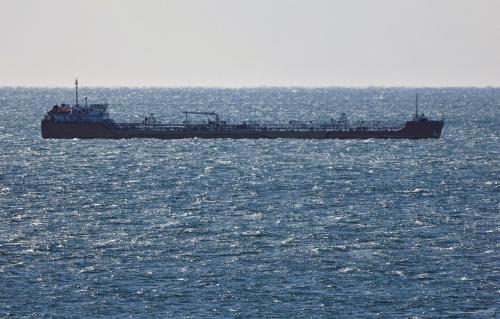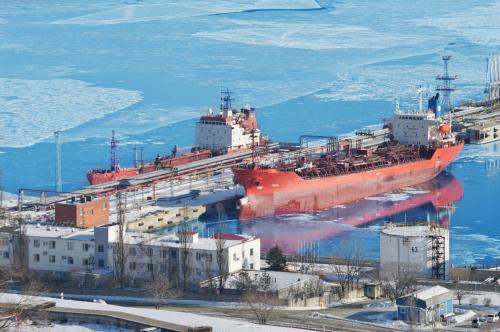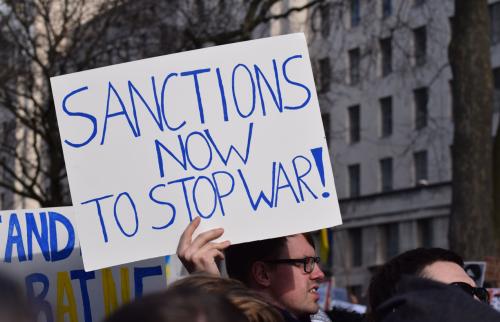

2:30 pm EDT - 3:30 pm EDT
Past Event
In December of 2022, the U.S., other members of the Group of Seven advanced economies, and Australia imposed a $60-a-barrel cap on Russia’s seaborne exports of crude oil. Under the sanctions imposed on Russia, only oil sold below this threshold can be insured by British and European companies which dominate the insurance market. The intent of the price cap, which originated with the U.S., was to keep Russian oil flowing to world markets since it is vital to the global economy while reducing the revenues going to Russia. For a deep dive on the price cap, read an explainer from the Brookings Hutchins Center Director David Wessel here.
The novel plan was greeted skeptically by many energy experts, but initially appeared to be working as intended: Russia oil was flowing, particularly to China and India, but at a discount to the prices that other producers were charging. Lately, however, Russia appears to have found ways to get around the cap–acquiring a fleet of older tankers to carry its oil without Western insurance. As global oil prices have risen lately, Russian oil is now selling above the $60 cap.
To assess the price cap Hutchins Center on Fiscal and Monetary Policy convened a panel of experts on Monday, October 16. The event opened with remarks from Brookings Economic Studies Vice President Ben Harris. Harris was an architect of the price cap while he was at the U.S. Treasury and described the origins of the plan here. Three private-sector energy experts who discussed the price cap at a Hutchins Center event in September 2022 will return. They were joined by Eric Van Nostrand, acting Assistant Treasury Secretary for Economic Policy. David Wessel moderated the conversation.
Viewers submitted questions on Twitter using the hashtag #OilPriceCap and by emailing [email protected].


Moderator


Robin Brooks, Ben Harris
February 27, 2025

Robin Brooks, Ben Harris
January 30, 2025

Oleg Itskhoki, Elina Ribakova, Robin Brooks, Rory MacFarquhar
September 25, 2024